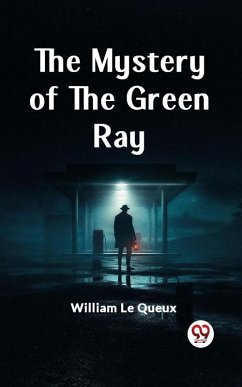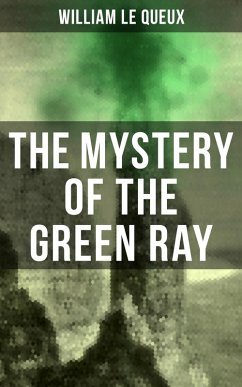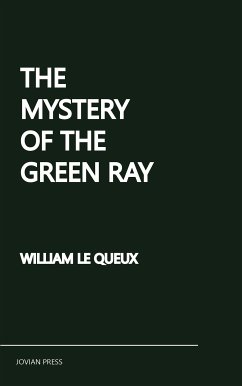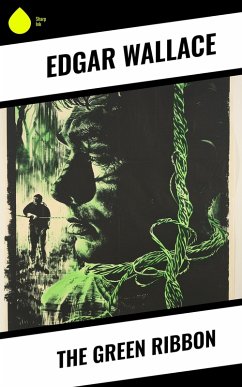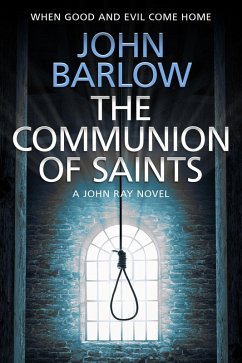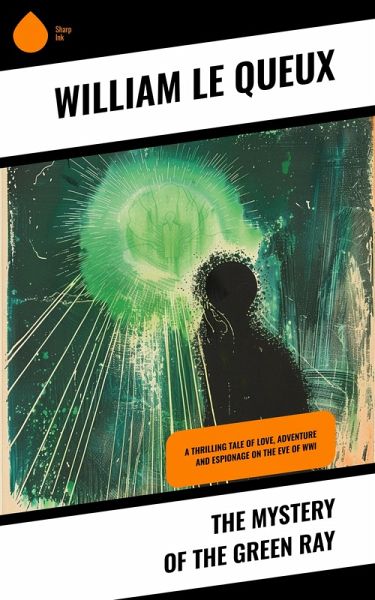
The Mystery of the Green Ray (eBook, ePUB)
A Thrilling Tale of Love, Adventure and Espionage on the Eve of WWI

PAYBACK Punkte
1 °P sammeln!
In "The Mystery of the Green Ray," William Le Queux intricately weaves a tale of espionage and intrigue set against the backdrop of European tensions in the early 20th century. The novel employs a rich, descriptive literary style that reflects the influence of Victorian narrative traditions while adopting an adventurous tone that foreshadows modern thrillers. Le Queux's keen observations of social dynamics and his innovative use of mysterious elements create a suspenseful atmosphere that captivated readers of his time and continues to resonate today, as themes of deception, love, and the quest...
In "The Mystery of the Green Ray," William Le Queux intricately weaves a tale of espionage and intrigue set against the backdrop of European tensions in the early 20th century. The novel employs a rich, descriptive literary style that reflects the influence of Victorian narrative traditions while adopting an adventurous tone that foreshadows modern thrillers. Le Queux's keen observations of social dynamics and his innovative use of mysterious elements create a suspenseful atmosphere that captivated readers of his time and continues to resonate today, as themes of deception, love, and the quest for truth unfold with each gripping chapter. William Le Queux, an English novelist and journalist, was deeply influenced by the political landscape of his era, particularly the rising tensions in Europe and the burgeoning world of espionage. His background in journalism and his extensive travels provided him with a diverse perspective on international affairs, fueling his imagination. Le Queux was known for his prolific output and his ability to tap into the zeitgeist of his time, as evidenced in works like "The Mystery of the Green Ray," where he explores the darker recesses of human ambition and the consequences of secrecy. For readers who relish a blend of suspense, romance, and historical intrigue, "The Mystery of the Green Ray" serves as an essential addition to their literary repertoire. Le Queux's ability to interlace a gripping plot with socio-political commentary provides a thought-provoking reading experience that echoes the complexities of human nature. This novel is not merely a tale of adventure; it is a reflection on the moral ramifications of loyalty and betrayal in a world on the brink of chaos.
Dieser Download kann aus rechtlichen Gründen nur mit Rechnungsadresse in A, B, BG, CY, CZ, D, DK, EW, E, FIN, F, GR, HR, H, IRL, I, LT, L, LR, M, NL, PL, P, R, S, SLO, SK ausgeliefert werden.





